Sanders School ranks in the bottom 50% of all schools in Indiana for overall test scores (math proficiency is bottom 50%, and reading proficiency is bottom 50%).
The percentage of students achieving proficiency in math was ≤10% (which was lower than the Indiana state average of 38%). The percentage of students achieving proficiency in reading/language arts was ≤10% (which was lower than the Indiana state average of 41%).
School Overview
School Type
Grades Offered
Grades Prekindergarten-12
Total Students (88-89)
113 students
Total Classroom Teachers
17 teachers
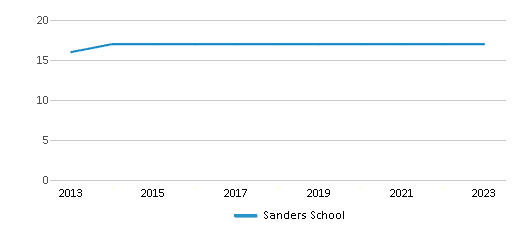
School Rankings
Overall Testing Rank
#1698 out of 1763 schools
(Bottom 50%)
(Bottom 50%)
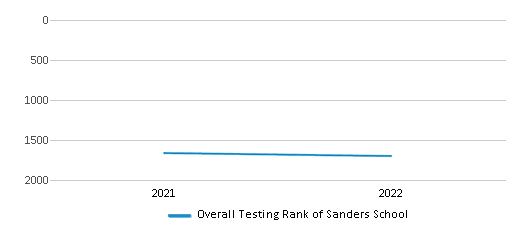
Math Test Scores (% Proficient)
≤10%
38%
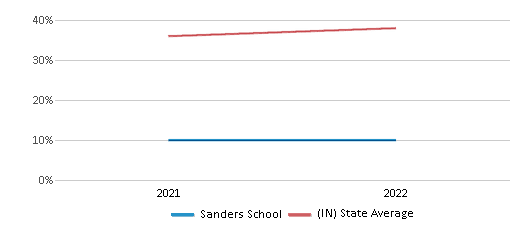
Reading/Language Arts Test Scores (% Proficient)
≤10%
41%
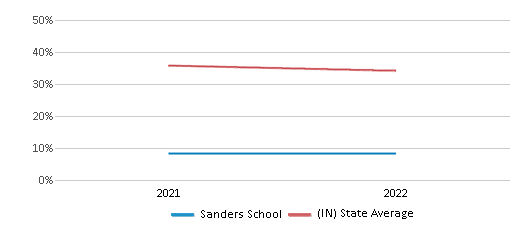
Science Test Scores (% Proficient)
≤20%
34%
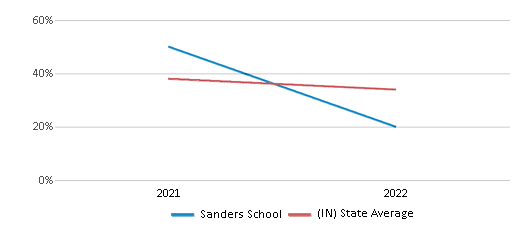
Student : Teacher Ratio
n/a
15:1
American Indian
(88-89)n/a
n/a
Asian
(88-89)n/a
1%
Hispanic
(88-89)1%
2%
Black
(88-89)18%
11%
White
(88-89)81%
86%
Hawaiian
(88-89)n/a
n/a
Two or more races
(88-89)n/a
n/a
Eligible for Free Lunch (88-89)
39%
16%
School Statewide Testing
School District Name
Source: National Center for Education Statistics (NCES), IN Dept. of Education
Frequently Asked Questions
What is Sanders School's ranking?
Sanders School is ranked #1698 out of 1,763 schools, which ranks it among the bottom 50% of public schools in Indiana.
What percent of students have achieved state testing proficiency in math and reading?
≤10% of students have achieved math proficiency (compared to the 38% IN state average), while ≤10% of students have achieved reading proficiency (compared to the 41% IN state average).
How many students attend Sanders School?
113 students attend Sanders School.
What is the racial composition of the student body?
81% of Sanders School students are White, 18% of students are Black, and 1% of students are Hispanic.
What grades does Sanders School offer ?
Sanders School offers enrollment in grades Prekindergarten-12
What school district is Sanders School part of?
Sanders School is part of Metropolitan School District Wayne Township.
Recent Articles

What Is A Charter School?
Explore the world of charter schools in this comprehensive guide. Learn about their history, how they operate, and the pros and cons of this educational innovation. Discover key facts about charter schools, including admission policies, demographics, and funding, as well as what to look for when considering a charter school for your child.

10 Reasons Why High School Sports Benefit Students
Discover the 10 compelling reasons why high school sports are beneficial for students. This comprehensive article explores how athletics enhance academic performance, foster personal growth, and develop crucial life skills. From improved fitness and time management to leadership development and community representation, learn why participating in high school sports can be a game-changer for students' overall success and well-being.

February 05, 2025
Understanding the U.S. Department of Education: Structure, Impact, and EvolutionWe explore how the Department of Education shapes American education, from its cabinet-level leadership to its impact on millions of students, written for general audiences seeking clarity on this vital institution.





